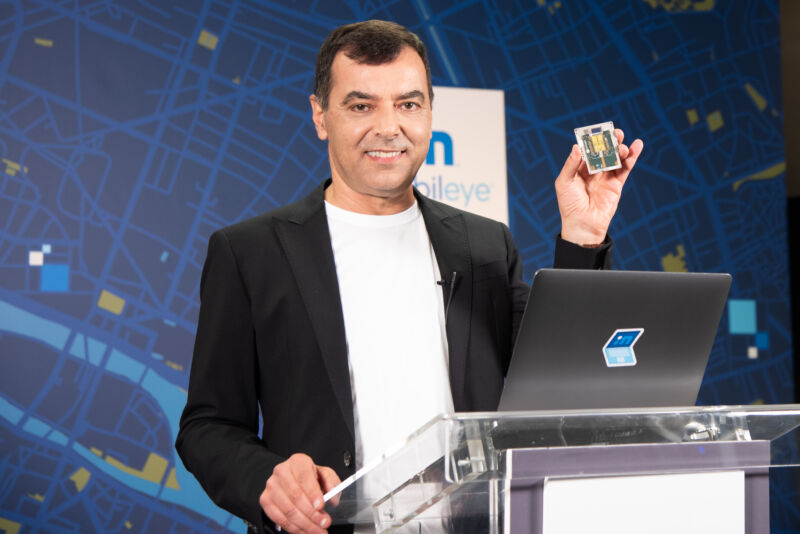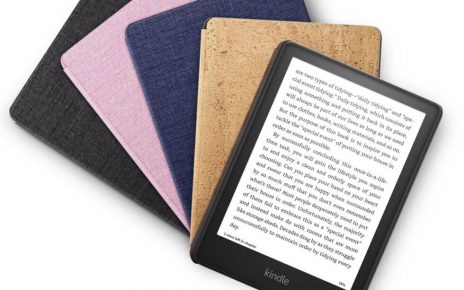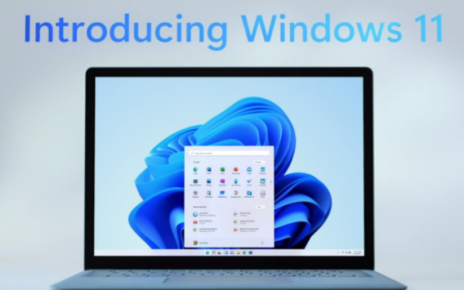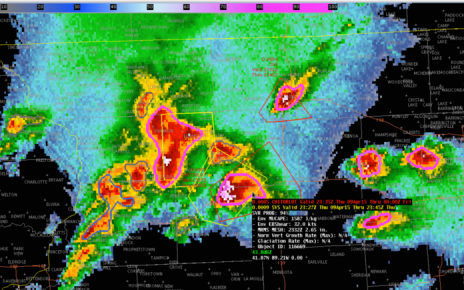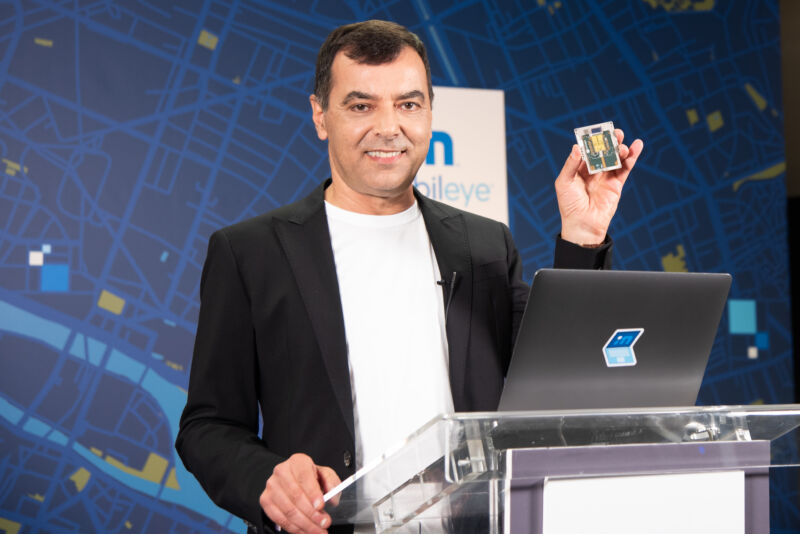
Enlarge / Mobileye CEO Amnon Shashua shows off a silicon photonics lidar chip slated for introduction in 2025. (credit: Mobileye)
One of the most underrated companies in the self-driving technology sector is Mobileye, an Israeli company that Intel purchased for $15 billion in 2017. Mobileye is the largest supplier of advanced driver-assistance systems (ADAS) that ship with today’s cars. In a Monday interview at the virtual CES conference, Mobileye explained its strategy to stay on top as the industry shifts to fully self-driving vehicles.
Mobileye’s self-driving strategy has a number of things in common with that of Tesla, the world’s most valuable automaker. Like Tesla, Mobileye is aiming to gradually evolve its current driver-assistance technology into a fully self-driving system. So far, neither company has shipped products with the expensive lidar sensors used in many self-driving prototypes.
And like Tesla, Mobileye has access to a wealth of real-world driving data from its customers’ cars. Tesla harvests data directly from Tesla customers. Mobileye has data-sharing agreements with six car companies—including Volkswagen, BMW, and Nissan—that ship Mobileye’s cameras, chips, and software.


